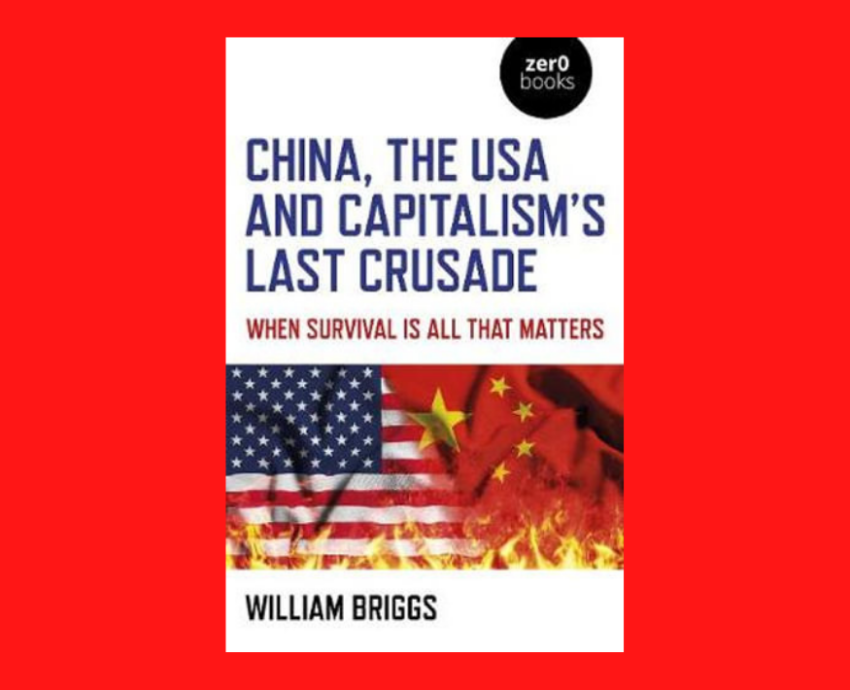
China, the USA and Capitalism's Last Crusade — When survival is all that matters
By William Briggs
Zero Books 2021
Author William Briggs characterises the intensifying conflict between the United States and China as a rivalry between two capitalist powers, one growing in strength, the other long dominant but now declining.
This conflict is occurring in a context where capitalism is experiencing a crisis it cannot overcome. Briggs argues that "capitalism and the nation-state ... are locked in an unresolvable set of contradictions that will hasten the demise of both state and economic system".
Capital depends on the nation-state: "The state...exists to facilitate the smooth operation and development of capitalism". But capital has a need to expand and go beyond national borders: "Productive forces have developed on a global scale".
Capitalist competition leads to war: "Individual capitalists are engaged in a constant battle for survival. You grow or you disappear. Capitalist conglomerates are equally engaged in struggle, one with the other. States are necessarily accomplices in this".
Hence "The history of capitalism has been a history of war, conquest and imperialism". Karl Kautsky's theory of ultra-imperialism, according to which the world's capitalists would peacefully compete in a global marketplace, was soon disproven by the outbreak of World War I.
Briggs argues that today "the threat of war has grown rather than diminished". The decline of the US and the rise of China create the conditions for conflict: "There has been economic war and the possibility of actual war is not to be discounted. The threat comes not directly from Beijing but from Washington". This is because, facing economic decline, the colossal military machine of the US is its "last card".
Briggs traces the economic decline of the US back to the 1970s, when capitalism entered into a major crisis. Faced with a declining profit rate, US capital began to shift production overseas to countries where wages were lower. This resulted in "mass unemployment along with a general reduction in wages" inside the US.
China became the main beneficiary of this shift: "its economy grew largely as a result of the advances made to it by US imperialism. American and international capitalism found a gigantic 'sweatshop' and conveyor belt. It became the West's factory". Western observers were enthusiastic: "China was seen as almost a saviour of capitalism".
But China eventually became "too successful", and became a rival of the leading capitalist powers, including the US.
Briggs insists that China today is capitalist, despite being ruled by a party calling itself communist, and despite the fact that the state still controls sections of the economy.
Citing a 2019 report by the World Economic forum, Briggs says that: "fully 60 per cent of China's GDP, 80 per cent of its urban employment and 90 per cent of all new jobs are the product of the private sector. Private capitalists account for 70 per cent of all investment and 90 per cent of exports, not to mention 66 per cent of all economic growth in the country".
The growth of an exploited and alienated working class has led to a rapid growth in strikes.
Referring to the rivalry between China and the US, Briggs says: "It is not culture that separates these two giants. What drives them apart, what makes enemies of the two, are the very similarities of economic aspiration".
On the question of whether China has become an imperialist power, Briggs is reluctant to jump to a definite conclusion: "It can certainly be argued that it exhibits some symptoms that are characteristic of an imperialist state, but equally it can be argued that it is not, at this stage of its development, an imperialist power ... What happens over time is another matter".
Briggs sees the US-China conflict as an aspect of the crisis of the world capitalist system. He sees hope in the revolts by people around the world, including strikes by workers in China and anti-racist protests in the US.
[Available from Resistance Books.]